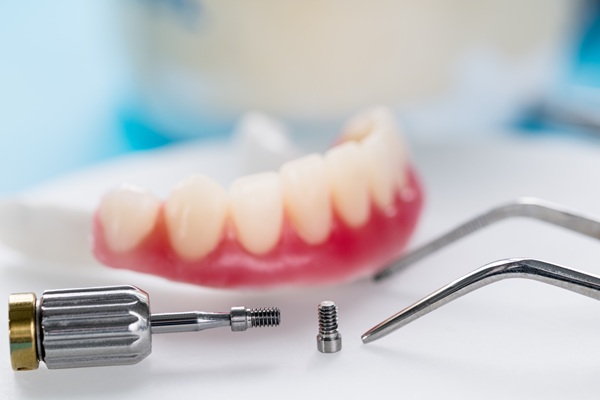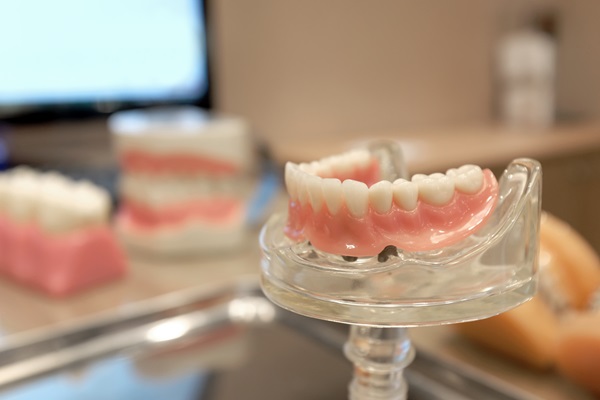What Are the Signs of TMJ?

TMJ (or TMD) stands for temporomandibular joint dysfunction, a disorder that causes pain and limited movement in the jaw joint and the surrounding muscles. A feeling of tiredness in the jaw hinge is often due to overuse when talking, chewing gum or eating. However, TMJ is more than just jaw fatigue and comes with an array of unpleasant symptoms.
In most cases, the exact cause of TMJ in a patient is hard to pin down. Pain in the jaw can be due to a combination of factors, like stress, past jaw injury and even genetics. Certain conditions, such as arthritis, can irritate the jaw, while bruxism, or the clenching and grinding of teeth, puts patients at risk for TMJ as well.
Pain associated with TMJ is normally temporary and can be relieved with over-the-counter pain medications and self-care. If you are experiencing intense jaw pain for a long period of time, surgery may be the best course of action.
Signs of TMJ
Sustained pain or tenderness in the jaw
Pain in one or both of the jaw joints, along with the surrounding muscles, is one of the first complaints from patients with TMJ. Most adults experience discomfort related to jaw movement at least once. When that sensitivity feels limiting in daily life and makes eating and speaking painful, it may be time to discuss TMJ treatment with your dentist.
Aching pain around and in the ear
This pain can come on suddenly and radiate for a time before subsiding. Since the jaw hinges and muscles are located in such close proximity to the ears, this unpleasant feeling can be connected to TMJ. Aching pain in the face, near the cheeks, may also be present during fits of TMJ.
Difficulty chewing
TMJ can also cause limited movement of the jaw. Pain while chewing means that your jaw muscles are working extra hard to help you chew.
Lockjaw
This symptom is the most severe and is usually rare. The hinge locks in place, making it difficult to open or close the mouth.
Clicking sound when moving the jaw
In combination with a few of the above symptoms, a clicking sound and a grating sensation can confirm TMJ. However, if there is no pain or limitation of movement accompanying the clicking or grating, you likely will not need treatment.
Risk factors for TMJ
Those with rheumatoid arthritis and osteoarthritis are at a heightened risk of developing symptoms of TMJ. When the disk erodes or moves out of alignment, painful TMJ may occur. Cartilage damage is another defining factor in limited jaw movement. TMJ due to jaw injuries will sometimes need restorative surgical treatment.
The muscles in the back and neck are closely connected to the facial and jaw muscles. For this reason, the cause of your TMJ might simply be due to stress. Muscle knots in the upper back can pull on the facial muscles, straining them and causing limited movement. The first line of defense against TMJ is stress relief techniques. After this, hot and cold compresses in succession may help relieve swelling and pain in the area.
Let's get started
Request an appointment here: https://www.emersondental.com or call Emerson Dental Associates at (201) 620-9998 for an appointment in our Emerson office.
Check out what others are saying about our services on Yelp: Read our Yelp reviews.
Recent Posts
Are you considering implant supported dentures? This hybrid tooth replacement option is one that provides patients with stability and a natural-looking smile. Implant supported dentures can be used to replace teeth on the upper or lower arch. In the event that the lower arch of teeth needs to be replaced, patients are often curious about…
All-on-6® dental implants are an efficient, effective way to replace every tooth in a dental arch. They are popular with dentists and patients alike, making them the go-to solution for full-arch dental restoration. If you are wondering what All-on-6 full-arch restoration is, keep going. What comes next is a description of this treatment option, along…
Dental anxiety often arises when patients feel afraid or worried about visiting their dentist's office, whether it be for a routine appointment or necessary procedure. However, even outside of organic feelings, there are a lot of myths that enhance dental anxiety. With the help of a dentist, myths can be set straight. Ready to learn…
If you properly care for your partial dentures, hopefully, they will last a long time. However, as with anything, they will break with enough wear-and-tear or accidental trauma. It’s essential to know at what point you should get them repaired. We will go through common issues that may arise with your dentures and the associated…


